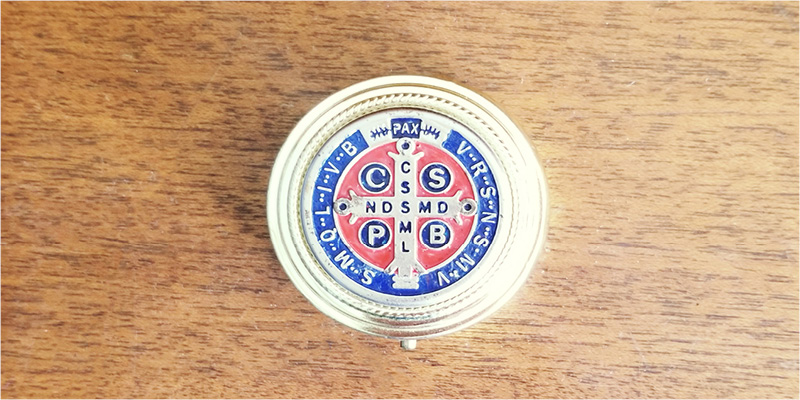As the Assistant for Pastoral Care, I would like to build awareness of an unnoticed but important ministry here at St. Michael’s by-the-Sea. This ministry is aimed at reaching out to members of our Church family who cannot attend Mass due toillness or other circumstances.
When we consciously choose to attend a communion service, we are acknowledging the physicality of the sacrament and our relationship with God, “We, and all others who shall be partakers of this Holy Communion, may worthily receive the most precious Body and Blood of thy Son Jesus Christ, be filled with thy grace and heavenly benediction, and made one body with him, that he may dwell in us, and we in him” (Book of Common Prayer).
It is Jesus dwelling in us and we in Him that builds our personal relationship with God and with this church community. In the St. Michael’s by-the-Sea Eucharistic Visitor Ministry, we strive to ensure all within our community receive Holy Communion even when they cannot physically attend Mass.
A brief history lesson:
- In early years of the Church, before the clerical order of bishops, priest and deacons wereestablished, lay members regularly administered the Eucharist to the sick and infirm.
- During the persecution of early Christians, the laity would take the consecrated elements home after the Massand throughout the week they would communicate themselves, their families and additionallyadminister to the sick, the shut-in,and dying.
- In the 4th Century the Church grew in structure and governance and there was a conflict over the laity being allowed to administer the Eucharist. There was a need for people to attend Massrather than self-administer communion, but nevertheless the practice continued.
- In the 7th Century there were strong attempts to stop the laity from acting as ministers of the Eucharist.Legislation was passed forbidding the laity to distribute communion when a bishop, priest or deacon was available.
- Tension over the issue existed over the next few centuries, including the 12th Century when the Church in England banned deacons carrying the elements as they thought it may lead to bishops and priests delegating their pastoral care duties.
- In 1804 the Episcopal Church passed a canon allowinga candidate for holy orders to administer the sacrament when a bishop or priest was not available.
- In 1871 the General Convention allowed the laity to take communion to those who could not attend Church services when a bishop or priest was not available.
- The role of Eucharistic Visitor officially came into being at the 1985 General Convention. Canons have evolved on who can assume this role, and how and when the sacrament should be administered.
- Today we have an active Eucharistic Visitor Ministry at St. Michael’s supported with formal training and licensing by the Diocese.
What is a Eucharistic Visitor?
The official definition of a Eucharistic Visitor (EV) is,“a lay person authorized to take the Consecrated Elements in a timely manner following a Celebration of Holy Eucharist to members of the congregation who, by reason of illness or infirmity, were unable to be present at the Celebration” (Overview of Lay Licensing in the Episcopal Diocese of San Diego).
Over the past few years Pastoral Care Visits and Eucharistic Visits have been taken to St. Michael’s by-the-Sea members and their loved ones on a regular basis. Dedicated members of this team give their time reaching out to others, taking communion to those who are sick, or making contact via telephone.
You may notice that EV team membersstay a little longer at the rail after communion as they receive a blessing and the consecrated elements they are taking out that day. This “sending out into the community” often goes unnoticed,or people may wonder why someone receives an ”extra” blessing. I encourage you to thank these team members for their service, and to learn more from them about this life-giving work.
Help ensure thatevery member of the St. Michael’s extended family has an opportunity to receive heavenly benediction!
Please contact me at [email protected] / 760.529.2606. We can discuss your calling to this very special team. Eucharistic Visitor Training is August 25th.

